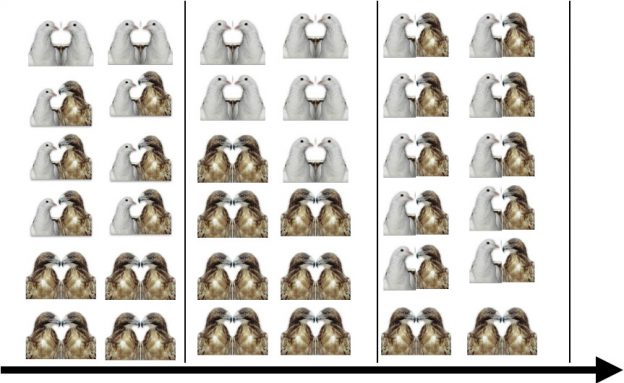Classic matrix models of evolutionary game theory assume that all interactions between strategies/phenotypes take the same amount of time. Here we are developing a new methodology to study models where interaction times depend on the two interacting strategies. We apply this theory to some classic evolutionary games. E.g., the classic Hawk-Dove game predicts that when interaction cost between two Hawks is low, the only evolutionarily stable strategy is all Hawks. In other words, when cost of aggressiveness is low, all individulas will be aggressive. However, when Hawk-Hawk interactions take long enough time, when compared with duration of other interactions, aggressiveness evolves even when the cost of fighting is low. For the repeated Prisoner’s dilemma, cooperation evolves if individuals opt out against defectors. This means that if a cooperator meets another cooperators, they will stay together as long as possible. However, if a cooperator meets a defector, it will play the game only once and then the pair will disband.
